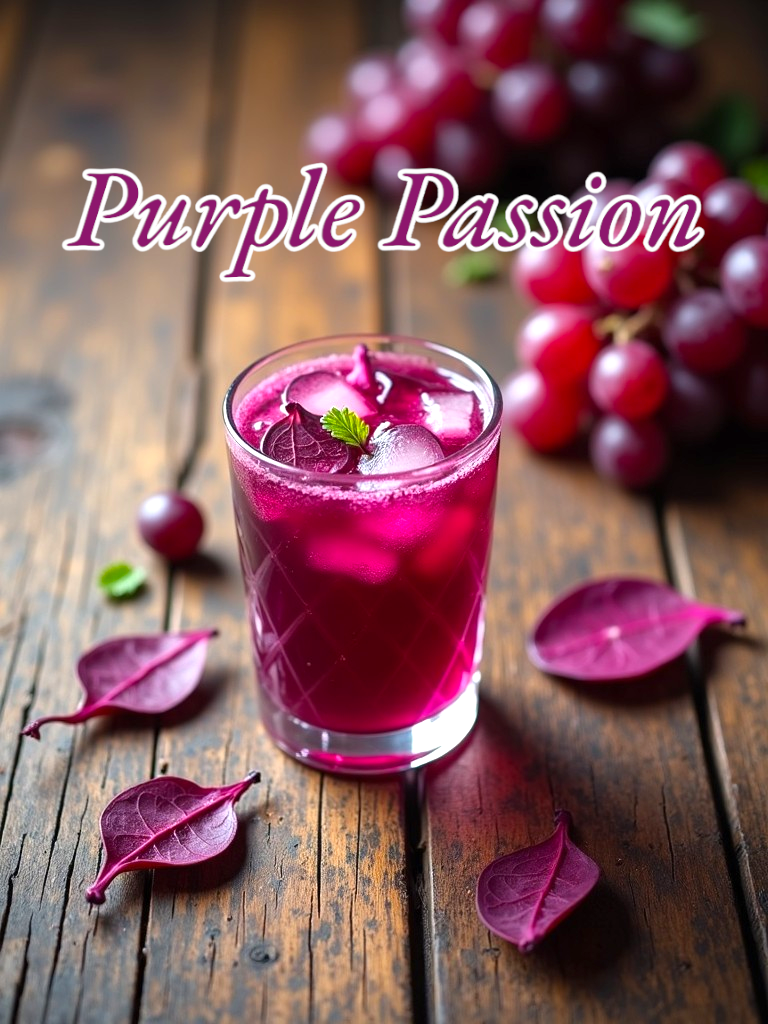Jireh Juices
Purple Passion
Purple Passion
Couldn't load pickup availability
Purple Passion
Ingredients: Purple Cabbage, Beet, Red Seeded Grapes, Lemon, Ginger
Purple cabbage juice has many potential health benefits, including:
- Antioxidants Purple cabbage juice is high in antioxidants, which can help reduce cell damage and inflammation.
- Anti-inflammatory Purple cabbage contains compounds that can help reduce chronic inflammation.
- Heart health Purple cabbage's fiber content can help lower cholesterol, and its anthocyanins may improve blood pressure.
- Immune system Purple cabbage contains vitamins and minerals that can strengthen the immune system.
- Eye health Purple cabbage's vitamin A can support healthy vision and may help prevent cataracts and macular degeneration.
- Stomach ulcers Purple cabbage contains glutamine, an amino acid that may help ease stomach ulcer discomfort and swelling. Cabbage juice has been used as a home remedy for stomach ulcers.
- Gastric ulcer healing One study found that cabbage juice helped heal gastric ulcers faster than standard medical treatment.
Other benefits of purple cabbage include: Promoting gut health, Strengthening bones, Protecting against certain cancers, and Maintaining healthy blood clotting.
Beet juice has many health benefits, including:
- Improved cardiovascular health: Beet juice contains nitrates, which can lower blood pressure and increase blood flow. This can help improve exercise performance and brain function.
- Reduced cholesterol: Beet juice can reduce LDL or "bad" cholesterol.
- Improved muscle strength: Beet juice can improve muscle strength in people with heart failure.
- Weight maintenance: Beet juice can help you maintain a healthy weight.
- Reduced liver fat: Beet juice can prevent or reduce fatty deposits from forming in your liver.
- Improved gut health: Beet juice is high in fiber, which promotes the growth of good bacteria in your gut. This can help fight disease and boost your immune system.
- Reduced oxidative stress: Beet juice contains antioxidants and a phytonutrient called betanin, which can reduce oxidative stress and protect against some cancers.
- Improved brain health: Beet juice contains uridine, which helps regulate brain health and controls the brain's reward, emotion, and pleasure centers.
However, drinking too much beet juice can lead to problems such as cramps and kidney stones. To get all of the benefits, you shouldn't boil or overcook the beets.
Red seeded grape juice has many potential health benefits, including:
- Heart health: Grape juice contains antioxidants that can help relax blood vessels, reduce inflammation, and lower the risk of blood clots.
- Digestive health: Grape juice can promote better digestion by increasing the flow of gastric juices.
- Bone health: Grape juice contains minerals like iron, calcium, and manganese, which are essential for bone health.
- Eye health: Grape juice can protect the retina and lens of the eye.
- Skin health: Grapes can reduce inflammation in the skin and protect it from UV rays, wrinkles, and melanoma.
- Blood pressure: Grape seed extract (GSE) can reduce blood pressure.
- Memory, attention, and mood: Eating grapes may improve memory, attention, and mood.
- Poor circulation: Grape seed extract or proanthocyanidin can reduce symptoms of poor circulation, such as tired or heavy legs and pain.
However, grape juice is high in sugar and has less fiber than whole fruits. Consuming large amounts of grape juice could increase blood sugar levels or contribute to weight gain. To minimize these risks, you can:
- Stick to a moderate intake.
- Select unsweetened varieties made with 100% grape juice.
Lemon juice has many health benefits, including:
- Immune system support: Lemons are high in vitamin C, which helps the body fight infection and boosts the immune system.
- Reduced risk of heart disease, stroke, and cancer: Lemons contain flavonoids, which are antioxidants that can help reduce the risk of these diseases.
- Lower blood pressure: Flavonoids in lemons can help lower blood pressure.
- Reduced risk of diabetes: Lemons contain hesperidin, which may lower blood sugar levels.
- Prevented kidney stones: The citric acid in lemons increases urine acidity and urine output, which makes it harder for the body to produce kidney stones.
- Improved skin health: Vitamin C helps the body produce collagen, which gives skin its elasticity and suppleness.
- Improved iron absorption: Vitamin C helps the body absorb iron from foods.
- Oral health: Lemon juice can help with oral disorders like scurvy, and may help with toothaches and inflammation.
- Aided digestion: Some people find that drinking lemon water in the morning helps with digestive regularity.
Lemon juice can also be used in home remedies for sore throats.
Ginger juice may have many health benefits, including:
- Digestion: Ginger can help food move through the stomach more efficiently, which can relieve nausea and indigestion.
- Inflammation: Ginger can reduce swelling and inflammation.
- Blood sugar: Ginger may help regulate insulin production and improve insulin sensitivity, which can help keep blood sugar levels stable.
- Antioxidants: Ginger contains antioxidants, which can help prevent and fight oxidative stress and cell damage.
- Immune system: Ginger can help strengthen the immune system.
- Pain relief: Ginger can help relieve pain, including menstrual cramps and arthritis symptoms.
- Cholesterol: Ginger may help lower cholesterol levels.
- Cancer growth: Some studies suggest that ginger may slow the growth of some cancers.
- Mouth health: Ginger's antibacterial properties may help keep your mouth healthy.
Ginger is generally considered safe at doses up to 4 grams per day. However, you should consult a healthcare provider before taking ginger shots if you are on medications, particularly blood thinners or blood sugar-lowering agents.
Share

